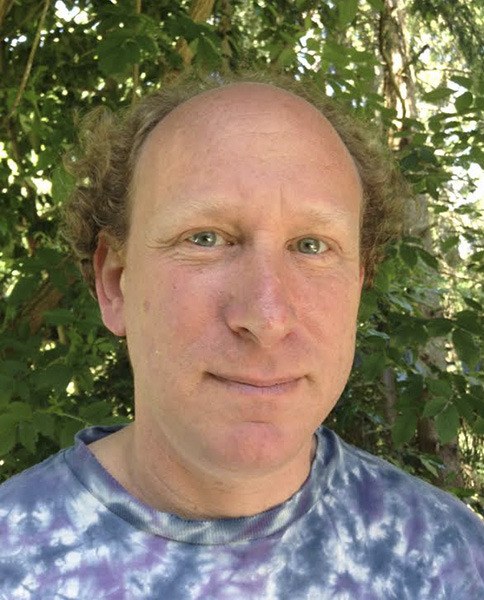Seventeen and a half years ago, my wife Andria gave birth to Quinn, our first child. As has so often been the case, I had the easy job here, clearly. All I had to do was help her to breathe, massage her back and try not to pass out. Easy. And yet, though my role was somewhat passive, it was transformative. Ultimately, having two children and partnering with Andria to nurture them through every stage, every trauma and drama of childhood has taught me previously unimagined depths of empathy and compassion.
Trying to parent mindfully has helped me grow, deepen my capacity for reflection, patience, tolerance and, dare I say, wisdom.
I was a teacher years before I was a parent. I have always enjoyed playing and learning with kids. Children have such an infectious energy. They keep me young and playful. But it wasn’t until I had my own children that I began to be able to walk in their shoes and feel through their hearts.
Parenting has taught me the lessons that now define my pedagogy as an educator: each child is unique, truly. This is a platitude to which many people will provide lip service, but it is a truth that has led me to help found a school and redefine my career and life’s work. Education should not be about pouring information into children on a predetermined schedule according to predefined standards. Education should be about helping children to self-discover and unfold naturally, holistically, in their own way and on their own schedule.
When Quinn was four years old, we enrolled him in a lovely little neighborhood co-op preschool in Portland. But this did not turn out to be the joyful experience we had hoped. We watched kids running and playing, while Quinn sat alone, barely holding it together, like one big clenched muscle. It didn’t take long for us to realize that the traditional approach to education might not be optimal for him. It took a little longer for me to extrapolate that realization to children more broadly. I left mainstream education that year and we all moved up here to Orcas Island.
It was a very happy accident that led me to connect with a small group of parents and begin to imagine that we could build a school around what were emerging as my core pedagogical beliefs. Salmonberry School was built on the fundamental principle that each child is absolutely unique. The teachers’ imperative is to continually wrestle with the questions, “What does this particular child, in this particular place, and in this unique developmental moment need from me? How can I engage them and kindle their fire for learning?” I had the great privilege of teaching my son for five years, then my daughter for another six. Now they have both graduated from Salmonberry. I’ve been surprised to discover that my passion for this little school and my personal pedagogy are as strong as ever. Quinn and Emma, now 17 and 13 years old, have bestowed upon me this powerful legacy. They continue to challenge me to grow and rethink everything I thought I knew on a regular basis.
In the time they spent in my classes, if they learned half of the lessons they taught me, they have received an incredible education indeed.
Children are like kites
by Erma Bombeck
You spend a lifetime trying to get them off the ground.
You run with them until you are both breathless.
They crash. They hit the rooftop.
You patch and comfort, adjust and teach.
You watch them lifted by the wind and assure them that
someday, they will fly.
Finally, they are airborne;
They need more string and you keep letting it out;
But with each twist of the ball of twine,
There is a sadness that goes with joy.
The kite becomes more distant and you know it won’t be long before that
beautiful creature will snap the lifeline that binds you two together and
will soar, free and alone.
Only then do you know that you did your job.
From “Forever, Erma: Best Loved Writing from America’s Favorite Humorist,” Andrews McNeel Publishing, 1997.



